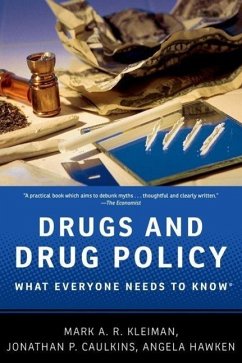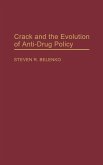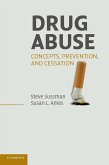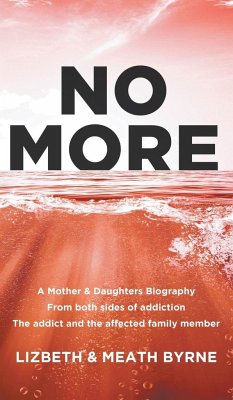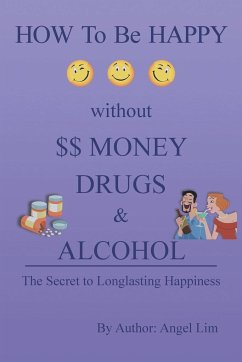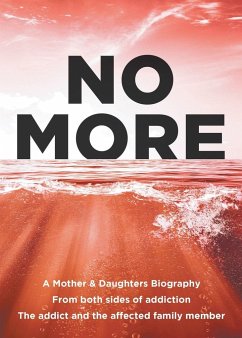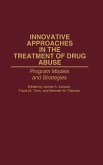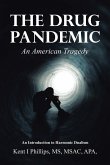Mark A R Kleiman, Jonathan P Caulkins, Angela Hawken
Drugs and Drug Policy
What Everyone Needs to Know
21,99 €
inkl. MwSt.
Versandfertig in 1-2 Wochen

11 °P sammeln
Mark A R Kleiman, Jonathan P Caulkins, Angela Hawken
Drugs and Drug Policy
What Everyone Needs to Know
- Broschiertes Buch
- Merkliste
- Auf die Merkliste
- Bewerten Bewerten
- Teilen
- Produkt teilen
- Produkterinnerung
- Produkterinnerung
While there have always been norms and customs around the use of drugs, explicit public policies--regulations, taxes, and prohibitions--designed to control drug abuse are a more recent phenomenon. Those policies sometimes have terrible side-effects: most prominently the development of criminal enterprises dealing in forbidden (or untaxed) drugs and the use of the profits of drug-dealing to finance insurgency and terrorism. Neither a drug-free world nor a world of free drugs seems to be on offer, leaving citizens and officials to face the age-old problem: What are we going to do about drugs?
Andere Kunden interessierten sich auch für
![Crack and the Evolution of Anti-Drug Policy Crack and the Evolution of Anti-Drug Policy]() Steven R. BelenkoCrack and the Evolution of Anti-Drug Policy73,99 €
Steven R. BelenkoCrack and the Evolution of Anti-Drug Policy73,99 €![Drug Abuse Drug Abuse]() Steven Yale SussmanDrug Abuse196,99 €
Steven Yale SussmanDrug Abuse196,99 €![No More No More]() Lizbeth Byrne & MeathNo More39,99 €
Lizbeth Byrne & MeathNo More39,99 €![How to Be Happy Without Money, Drugs or Alcohol How to Be Happy Without Money, Drugs or Alcohol]() Angel LimHow to Be Happy Without Money, Drugs or Alcohol17,99 €
Angel LimHow to Be Happy Without Money, Drugs or Alcohol17,99 €![No More No More]() Lizbeth Byrne & MeathNo More35,99 €
Lizbeth Byrne & MeathNo More35,99 €![Innovative Approaches in the Treatment of Drug Abuse Innovative Approaches in the Treatment of Drug Abuse]() Innovative Approaches in the Treatment of Drug Abuse106,99 €
Innovative Approaches in the Treatment of Drug Abuse106,99 €![The Drug Pandemic The Drug Pandemic]() Kent I Phillips MSAC APAThe Drug Pandemic21,99 €
Kent I Phillips MSAC APAThe Drug Pandemic21,99 €-
-
-
While there have always been norms and customs around the use of drugs, explicit public policies--regulations, taxes, and prohibitions--designed to control drug abuse are a more recent phenomenon. Those policies sometimes have terrible side-effects: most prominently the development of criminal enterprises dealing in forbidden (or untaxed) drugs and the use of the profits of drug-dealing to finance insurgency and terrorism. Neither a drug-free world nor a world of free drugs seems to be on offer, leaving citizens and officials to face the age-old problem: What are we going to do about drugs?
Hinweis: Dieser Artikel kann nur an eine deutsche Lieferadresse ausgeliefert werden.
Hinweis: Dieser Artikel kann nur an eine deutsche Lieferadresse ausgeliefert werden.
Produktdetails
- Produktdetails
- Verlag: Oxford University Press
- Seitenzahl: 258
- Erscheinungstermin: 1. Juli 2011
- Englisch
- Abmessung: 210mm x 140mm x 15mm
- Gewicht: 358g
- ISBN-13: 9780199764501
- ISBN-10: 0199764506
- Artikelnr.: 32730803
- Herstellerkennzeichnung
- Libri GmbH
- Europaallee 1
- 36244 Bad Hersfeld
- gpsr@libri.de
- Verlag: Oxford University Press
- Seitenzahl: 258
- Erscheinungstermin: 1. Juli 2011
- Englisch
- Abmessung: 210mm x 140mm x 15mm
- Gewicht: 358g
- ISBN-13: 9780199764501
- ISBN-10: 0199764506
- Artikelnr.: 32730803
- Herstellerkennzeichnung
- Libri GmbH
- Europaallee 1
- 36244 Bad Hersfeld
- gpsr@libri.de
Mark A.R. Kleiman is Professor of Public Policy at UCLA, editor of The Journal of Drug Policy Analysis, and author of When Brute Force Fails and Against Excess. Jonathan P. Caulkins is Stever Professor of Operations Research and Public Policy at Carnegie Mellon University. Angela Hawken is Associate Professor of Public Policy at Pepperdine University.
* Acknowledgements
* Introduction
* 1: WHY IS "DRUG" THE NAME OF A PROBLEM?
* What is a drug?
* And why is drug use a problem?
* If abusable psychoactives can be used safely, where does the problem
come in? What does it mean for a drug to be "toxic"?
* What is behavioural toxicity? Is it the same as intoxication?
* What is addiction?l toxicity? Is it the same as What is dependency?
* Is addiction a disease? Is it a "chronic, relapsing brain disorder"?
* Does that mean that drug addicts are not morally responsible for
their drug-taking?
* Is the risk of addiction limited to those with an "addictive
personality," or to those genetically predisposed to addiction? Which
drug is most dangerous or most addictive?
* 2: WHY HAVE DRUG LAWS?ddicts are not morally responsible What is drug
abuse control policy?
* All those sound like good ideas. So what's the problem?ctive Then
wouldn't it be possible to have no coercive drug abuse control
policies at all? And wouldn't such a "no coercion" policy have
results better than the current mess?
* The damage from cocaine dealing and cocaine enforcement, and the
crime committed by cocaine users to pay for their habit, is much
greater than the damage from cocaine use. Doesn't that prove that
prohibition does more harm than good?
* If the results of legalization are uncertain, why not just try it
out, and go back to the current system if legalization doesn't work?
* Why would you expect newly-legal drugs to be much more widely used
than the same drugs are now? After all, anyone who is really
determined to get an illegal drug can do so.
* But wasn't alcohol prohibition in the United States a complete
failure?
* But everyone knows that Prohibition led to a big increase in
homicides.
* But didn't Holland and Portugal legalize drugs without any resulting
disaster?
* But didn't Holland legalize cannabis?
* What's the difference between "legalization" and "decriminalization"
or "depenalization"?
* How much of the increase in consumption after legalization would
reflect increased problem use rather than increased casual and
beneficial use?
* Can't the effects of marketing be reined in by regulations and taxes?
* What about legal availability without free trade? Couldn't that work?
* Couldn't you just let users go to physicians for their recreational
drugs, and make it the doctor's business to try to prevent the
development of problem use patterns?
* But isn't it impossible to make someone better off by coercing
behavioural change? If people want drugs, doesn't depriving them of
drugs make them worse off by definition?
* If someone chooses to harm himself with a drug, why is that any of
anyone else's business?
* But wouldn't any increase in addiction to newly-legalized drugs be
matched by a decrease in alcohol abuse?
* Isn't everyone with an addictive personality already addicted to
something?
* Should we go back to Prohibition, then? Or legalize the other drugs?
* Does that mean that we're stuck with our current alcohol problem?
* Are higher taxes the only practical route to a smaller alcohol
problem?
* If not alcohol, should we prohibit tobacco?
* 3: HOW DOES DRUG LAW ENFORCEMENT WORK?
* How is drug enforcement unlike enforcement against other crimes?
* Why are illegal drugs so expensive?
* Does enforcing prohibition more aggressively drive up prices still
higher?
* Do high prices discourage drug use? Or will addicts always get their
high?
* Are Higher Prices Good or Bad?
* Does reduced availability discourage drug use?
* Does catching drug kingpins make drugs less available?
* What are precursor chemicals and precursor controls, and how do they
affect the price of drugs?
* What is money laundering and can we stop the flow of drug money?
* Are Prisons full of Non-Violent Drug Offenders?
* Do Long Sentences for Dealers Reduce Drug Use?
* Why have crack dealers been punished more harshly than powder-cocaine
dealers?
* What is the difference between flagrant and discreet drug selling,
and why does it matter?
* Does the existence of flagrant selling prove the police are corrupt?
* Can street drug markets be broken up?
* Can Prevention and Treatment Help Drug Law Enforcement?
* What are Designer Drugs?
* How does the internet complicate drug control?
* Should the police be able to confiscate drug dealers' assets?
* 4: WHAT PREVENTS DRUG ABUSE?
* What are risk factors for drug use? Protective factors?
* Do drug "pushers" hook unsuspecting children?
* Can we persuade children not to use drugs?
* Why do high expectations for prevention persist?
* Can we design prevention specifically to address the next drug
epidemic?
* How do DARE, Life Skills, and the Good Behaviour Game differ?
* What is the "Good Behaviour Game"?
* Is Marijuana a "gateway drug"?
* Could there be a vaccine against drug abuse?
* What is secondary or indicated prevention?
* Does drug abuse spread like an epidemic disease?
* Should Drug Policy Vary Over the Epidemic Cycle?
* What's the point of workplace drug testing?
* 5: WHAT TREATS DRUG ABUSE?
* Do All Drug Abusers Need Treatment?
* What is "behavioural triage"?
* Do users have to "hit bottom" before they recover?
* What are the Twelve Steps?
* What is detoxification?
* Is Detoxification Treatment?
* What is methadone?
* Does methadone detox work?
* Does methadone maintenance work?
* Why is methadone controversial?
* Why not tighten up the rules in methadone clinics to require clients
to abstain from drug abuse and diversion?
* What is buprenorphine?
* What is heroin maintenance and is it treatment?
* Does substitution therapy work for illicit drugs other than the
opiates?
* How does treatment for stimulants such as cocaine and methamphetamine
work?
* What is a Therapeutic Community?
* What is "contingency management"?
* Why is there a shortage of drug treatment?
* How do you treat a drug-involved teen?
* How about just giving addicts the drugs they crave?
* 6: HOW MUCH CRIME IS DRUG-RELATED?
* Is it drugs that cause crimes, or drug policies?
* How are drugs used in date rape?
* Are there other ways that drugs cause crimes?
* How about offering drug treatment in place of prison?
* Why haven't treatment diversion programs performed better?
* What are Drug Courts?
* What is HOPE?
* Can HOPE really solve the drugs-crime problem?
* 7: WHAT ARE THE BENEFITS OF DRUG USE?
* Can abusable drugs be beneficial?
* Can abusable drugs be beneficial other than as medicine?
* Can abusable drugs be beneficial other than as medicines and other
than as sources of pleasure for the user?
* Why should mere pleasure count as a benefit?
* Does anyone really doubt that some abusable drugs are medically
useful?
* What medical conditions can abusable drugs treat, or palliate?
* Pain
* Sleep disorder
* Appetite enhancement and nausea control
* Psychiatric diagnoses and Attention Deficit/Hyperactivity
* Disorder (ADHD)
* Do any "street drugs" have potential for treating psychiatric
disorders?
* Are drugs useful for mood management?
* Can drugs be used as performance enhancers for people who do not have
any diagnosable deficit?
* Can drugs enhance athletic performance?
* Are there true aphrodisiacs?
* What about cognitive enhancers?
* Can drug-taking enhance the appreciation of music and the visual
arts?
* Can drugs enhance creativity?
* Do all performance enhancing drugs work the same way?
* What rule can drugs play in religious and spiritual life?
* 8: CAN DRUG PROBLEMS BE DEALT WITH AT THE SOURCE?
* Do international programs offer a quick fix to drug problems?
* Can we seal the borders to drugs?
* Does border interdiction have any effect on drug use?
* Does crop eradication help?
* Can alternative development woo farmers away from growing drug crops?
* Why not just buy the coca and poppy crops?
* Can we force Colombia, Mexico, and Afghanistan to stop exporting
drugs?
* Why are drugs covered by international treaties?
* Are drugs really the largest component of international trade?
* 9: DOES INTERNATIONAL DRUG DEALING SUPPORT TERRORISM?
* How do terrorists get a cut of the drug business?
* How much money is involved?
* Money aside, what are the other links between drugs and terrorism?
* How does corruption fit into the drug-and-terror picture?
* If drug dealing helps terrorists, does enforcing drug laws help
control terrorism? Is "counter-narcotics" an integral part of
"counter-insurgency"?
* How does drug law enforcement give terrorists and their clients a
competitive advantage?
* Why does drug law enforcement in drug-exporting countries increase
the amount of money in the illicit drug trade?
* Why not just buy the opium crop and put the traffickers out of
business?
* Would rural economic development provide an alternative to
poppy-growing for poor farmers?
* Can't effective enforcement take a country out of the
drug-trafficking picture entirely?
* Should we legalize drugs as a counter-terrorist measure?
* Short of legalization, how can we reduce the contribution of drugs,
drug laws, and drug law enforcement to the terrorism problem?
* How about fighting corruption?
* Wouldn't prevention and treatment help?
* 10: WHEN IT COMES TO DRUGS, WHY CAN'T WE THINK CALMLY AND PLAY NICE?
* Why do arguments about drug policy get so irrational and so
mean-spirited?
* Aren't the culture wars mostly behind us?
* Why can't the politicians and the culture warriors just stay out of
it and let science decide on drug policy?
* What else keeps science from contributing more?
* Then how can we improve our evidence base?
* What role do the mass media play?
* How does race intersect with drug policy?
* Why are so many black Americans in prison for drug crimes?
* But doesn't the crack/powder disparity represent racism in action?
* CONCLUSION: WHAT IS TO BE DONE?
* The consensus list
* For the pragmatists
* A bridge too far
* Appendix: HOW DO DRUGS WORK IN THE BRAIN?
* How does the neuron-to-neuron communication process work?
* And how do drugs fit in to this process?
* Are the agonists the same as the stimulants, and the antagonists the
same as the depressants?
* How does all of this relate to addiction?
* So is addiction just in the neurons?
* Can antagonists be used to deal with addiction?
* Can there be vaccines against addiction?
* How about finding less damaging substitutes? Why can't we make
non-addictive versions of today's drugs of abuse?
* Bibliography
* Index
* Introduction
* 1: WHY IS "DRUG" THE NAME OF A PROBLEM?
* What is a drug?
* And why is drug use a problem?
* If abusable psychoactives can be used safely, where does the problem
come in? What does it mean for a drug to be "toxic"?
* What is behavioural toxicity? Is it the same as intoxication?
* What is addiction?l toxicity? Is it the same as What is dependency?
* Is addiction a disease? Is it a "chronic, relapsing brain disorder"?
* Does that mean that drug addicts are not morally responsible for
their drug-taking?
* Is the risk of addiction limited to those with an "addictive
personality," or to those genetically predisposed to addiction? Which
drug is most dangerous or most addictive?
* 2: WHY HAVE DRUG LAWS?ddicts are not morally responsible What is drug
abuse control policy?
* All those sound like good ideas. So what's the problem?ctive Then
wouldn't it be possible to have no coercive drug abuse control
policies at all? And wouldn't such a "no coercion" policy have
results better than the current mess?
* The damage from cocaine dealing and cocaine enforcement, and the
crime committed by cocaine users to pay for their habit, is much
greater than the damage from cocaine use. Doesn't that prove that
prohibition does more harm than good?
* If the results of legalization are uncertain, why not just try it
out, and go back to the current system if legalization doesn't work?
* Why would you expect newly-legal drugs to be much more widely used
than the same drugs are now? After all, anyone who is really
determined to get an illegal drug can do so.
* But wasn't alcohol prohibition in the United States a complete
failure?
* But everyone knows that Prohibition led to a big increase in
homicides.
* But didn't Holland and Portugal legalize drugs without any resulting
disaster?
* But didn't Holland legalize cannabis?
* What's the difference between "legalization" and "decriminalization"
or "depenalization"?
* How much of the increase in consumption after legalization would
reflect increased problem use rather than increased casual and
beneficial use?
* Can't the effects of marketing be reined in by regulations and taxes?
* What about legal availability without free trade? Couldn't that work?
* Couldn't you just let users go to physicians for their recreational
drugs, and make it the doctor's business to try to prevent the
development of problem use patterns?
* But isn't it impossible to make someone better off by coercing
behavioural change? If people want drugs, doesn't depriving them of
drugs make them worse off by definition?
* If someone chooses to harm himself with a drug, why is that any of
anyone else's business?
* But wouldn't any increase in addiction to newly-legalized drugs be
matched by a decrease in alcohol abuse?
* Isn't everyone with an addictive personality already addicted to
something?
* Should we go back to Prohibition, then? Or legalize the other drugs?
* Does that mean that we're stuck with our current alcohol problem?
* Are higher taxes the only practical route to a smaller alcohol
problem?
* If not alcohol, should we prohibit tobacco?
* 3: HOW DOES DRUG LAW ENFORCEMENT WORK?
* How is drug enforcement unlike enforcement against other crimes?
* Why are illegal drugs so expensive?
* Does enforcing prohibition more aggressively drive up prices still
higher?
* Do high prices discourage drug use? Or will addicts always get their
high?
* Are Higher Prices Good or Bad?
* Does reduced availability discourage drug use?
* Does catching drug kingpins make drugs less available?
* What are precursor chemicals and precursor controls, and how do they
affect the price of drugs?
* What is money laundering and can we stop the flow of drug money?
* Are Prisons full of Non-Violent Drug Offenders?
* Do Long Sentences for Dealers Reduce Drug Use?
* Why have crack dealers been punished more harshly than powder-cocaine
dealers?
* What is the difference between flagrant and discreet drug selling,
and why does it matter?
* Does the existence of flagrant selling prove the police are corrupt?
* Can street drug markets be broken up?
* Can Prevention and Treatment Help Drug Law Enforcement?
* What are Designer Drugs?
* How does the internet complicate drug control?
* Should the police be able to confiscate drug dealers' assets?
* 4: WHAT PREVENTS DRUG ABUSE?
* What are risk factors for drug use? Protective factors?
* Do drug "pushers" hook unsuspecting children?
* Can we persuade children not to use drugs?
* Why do high expectations for prevention persist?
* Can we design prevention specifically to address the next drug
epidemic?
* How do DARE, Life Skills, and the Good Behaviour Game differ?
* What is the "Good Behaviour Game"?
* Is Marijuana a "gateway drug"?
* Could there be a vaccine against drug abuse?
* What is secondary or indicated prevention?
* Does drug abuse spread like an epidemic disease?
* Should Drug Policy Vary Over the Epidemic Cycle?
* What's the point of workplace drug testing?
* 5: WHAT TREATS DRUG ABUSE?
* Do All Drug Abusers Need Treatment?
* What is "behavioural triage"?
* Do users have to "hit bottom" before they recover?
* What are the Twelve Steps?
* What is detoxification?
* Is Detoxification Treatment?
* What is methadone?
* Does methadone detox work?
* Does methadone maintenance work?
* Why is methadone controversial?
* Why not tighten up the rules in methadone clinics to require clients
to abstain from drug abuse and diversion?
* What is buprenorphine?
* What is heroin maintenance and is it treatment?
* Does substitution therapy work for illicit drugs other than the
opiates?
* How does treatment for stimulants such as cocaine and methamphetamine
work?
* What is a Therapeutic Community?
* What is "contingency management"?
* Why is there a shortage of drug treatment?
* How do you treat a drug-involved teen?
* How about just giving addicts the drugs they crave?
* 6: HOW MUCH CRIME IS DRUG-RELATED?
* Is it drugs that cause crimes, or drug policies?
* How are drugs used in date rape?
* Are there other ways that drugs cause crimes?
* How about offering drug treatment in place of prison?
* Why haven't treatment diversion programs performed better?
* What are Drug Courts?
* What is HOPE?
* Can HOPE really solve the drugs-crime problem?
* 7: WHAT ARE THE BENEFITS OF DRUG USE?
* Can abusable drugs be beneficial?
* Can abusable drugs be beneficial other than as medicine?
* Can abusable drugs be beneficial other than as medicines and other
than as sources of pleasure for the user?
* Why should mere pleasure count as a benefit?
* Does anyone really doubt that some abusable drugs are medically
useful?
* What medical conditions can abusable drugs treat, or palliate?
* Pain
* Sleep disorder
* Appetite enhancement and nausea control
* Psychiatric diagnoses and Attention Deficit/Hyperactivity
* Disorder (ADHD)
* Do any "street drugs" have potential for treating psychiatric
disorders?
* Are drugs useful for mood management?
* Can drugs be used as performance enhancers for people who do not have
any diagnosable deficit?
* Can drugs enhance athletic performance?
* Are there true aphrodisiacs?
* What about cognitive enhancers?
* Can drug-taking enhance the appreciation of music and the visual
arts?
* Can drugs enhance creativity?
* Do all performance enhancing drugs work the same way?
* What rule can drugs play in religious and spiritual life?
* 8: CAN DRUG PROBLEMS BE DEALT WITH AT THE SOURCE?
* Do international programs offer a quick fix to drug problems?
* Can we seal the borders to drugs?
* Does border interdiction have any effect on drug use?
* Does crop eradication help?
* Can alternative development woo farmers away from growing drug crops?
* Why not just buy the coca and poppy crops?
* Can we force Colombia, Mexico, and Afghanistan to stop exporting
drugs?
* Why are drugs covered by international treaties?
* Are drugs really the largest component of international trade?
* 9: DOES INTERNATIONAL DRUG DEALING SUPPORT TERRORISM?
* How do terrorists get a cut of the drug business?
* How much money is involved?
* Money aside, what are the other links between drugs and terrorism?
* How does corruption fit into the drug-and-terror picture?
* If drug dealing helps terrorists, does enforcing drug laws help
control terrorism? Is "counter-narcotics" an integral part of
"counter-insurgency"?
* How does drug law enforcement give terrorists and their clients a
competitive advantage?
* Why does drug law enforcement in drug-exporting countries increase
the amount of money in the illicit drug trade?
* Why not just buy the opium crop and put the traffickers out of
business?
* Would rural economic development provide an alternative to
poppy-growing for poor farmers?
* Can't effective enforcement take a country out of the
drug-trafficking picture entirely?
* Should we legalize drugs as a counter-terrorist measure?
* Short of legalization, how can we reduce the contribution of drugs,
drug laws, and drug law enforcement to the terrorism problem?
* How about fighting corruption?
* Wouldn't prevention and treatment help?
* 10: WHEN IT COMES TO DRUGS, WHY CAN'T WE THINK CALMLY AND PLAY NICE?
* Why do arguments about drug policy get so irrational and so
mean-spirited?
* Aren't the culture wars mostly behind us?
* Why can't the politicians and the culture warriors just stay out of
it and let science decide on drug policy?
* What else keeps science from contributing more?
* Then how can we improve our evidence base?
* What role do the mass media play?
* How does race intersect with drug policy?
* Why are so many black Americans in prison for drug crimes?
* But doesn't the crack/powder disparity represent racism in action?
* CONCLUSION: WHAT IS TO BE DONE?
* The consensus list
* For the pragmatists
* A bridge too far
* Appendix: HOW DO DRUGS WORK IN THE BRAIN?
* How does the neuron-to-neuron communication process work?
* And how do drugs fit in to this process?
* Are the agonists the same as the stimulants, and the antagonists the
same as the depressants?
* How does all of this relate to addiction?
* So is addiction just in the neurons?
* Can antagonists be used to deal with addiction?
* Can there be vaccines against addiction?
* How about finding less damaging substitutes? Why can't we make
non-addictive versions of today's drugs of abuse?
* Bibliography
* Index
* Acknowledgements
* Introduction
* 1: WHY IS "DRUG" THE NAME OF A PROBLEM?
* What is a drug?
* And why is drug use a problem?
* If abusable psychoactives can be used safely, where does the problem
come in? What does it mean for a drug to be "toxic"?
* What is behavioural toxicity? Is it the same as intoxication?
* What is addiction?l toxicity? Is it the same as What is dependency?
* Is addiction a disease? Is it a "chronic, relapsing brain disorder"?
* Does that mean that drug addicts are not morally responsible for
their drug-taking?
* Is the risk of addiction limited to those with an "addictive
personality," or to those genetically predisposed to addiction? Which
drug is most dangerous or most addictive?
* 2: WHY HAVE DRUG LAWS?ddicts are not morally responsible What is drug
abuse control policy?
* All those sound like good ideas. So what's the problem?ctive Then
wouldn't it be possible to have no coercive drug abuse control
policies at all? And wouldn't such a "no coercion" policy have
results better than the current mess?
* The damage from cocaine dealing and cocaine enforcement, and the
crime committed by cocaine users to pay for their habit, is much
greater than the damage from cocaine use. Doesn't that prove that
prohibition does more harm than good?
* If the results of legalization are uncertain, why not just try it
out, and go back to the current system if legalization doesn't work?
* Why would you expect newly-legal drugs to be much more widely used
than the same drugs are now? After all, anyone who is really
determined to get an illegal drug can do so.
* But wasn't alcohol prohibition in the United States a complete
failure?
* But everyone knows that Prohibition led to a big increase in
homicides.
* But didn't Holland and Portugal legalize drugs without any resulting
disaster?
* But didn't Holland legalize cannabis?
* What's the difference between "legalization" and "decriminalization"
or "depenalization"?
* How much of the increase in consumption after legalization would
reflect increased problem use rather than increased casual and
beneficial use?
* Can't the effects of marketing be reined in by regulations and taxes?
* What about legal availability without free trade? Couldn't that work?
* Couldn't you just let users go to physicians for their recreational
drugs, and make it the doctor's business to try to prevent the
development of problem use patterns?
* But isn't it impossible to make someone better off by coercing
behavioural change? If people want drugs, doesn't depriving them of
drugs make them worse off by definition?
* If someone chooses to harm himself with a drug, why is that any of
anyone else's business?
* But wouldn't any increase in addiction to newly-legalized drugs be
matched by a decrease in alcohol abuse?
* Isn't everyone with an addictive personality already addicted to
something?
* Should we go back to Prohibition, then? Or legalize the other drugs?
* Does that mean that we're stuck with our current alcohol problem?
* Are higher taxes the only practical route to a smaller alcohol
problem?
* If not alcohol, should we prohibit tobacco?
* 3: HOW DOES DRUG LAW ENFORCEMENT WORK?
* How is drug enforcement unlike enforcement against other crimes?
* Why are illegal drugs so expensive?
* Does enforcing prohibition more aggressively drive up prices still
higher?
* Do high prices discourage drug use? Or will addicts always get their
high?
* Are Higher Prices Good or Bad?
* Does reduced availability discourage drug use?
* Does catching drug kingpins make drugs less available?
* What are precursor chemicals and precursor controls, and how do they
affect the price of drugs?
* What is money laundering and can we stop the flow of drug money?
* Are Prisons full of Non-Violent Drug Offenders?
* Do Long Sentences for Dealers Reduce Drug Use?
* Why have crack dealers been punished more harshly than powder-cocaine
dealers?
* What is the difference between flagrant and discreet drug selling,
and why does it matter?
* Does the existence of flagrant selling prove the police are corrupt?
* Can street drug markets be broken up?
* Can Prevention and Treatment Help Drug Law Enforcement?
* What are Designer Drugs?
* How does the internet complicate drug control?
* Should the police be able to confiscate drug dealers' assets?
* 4: WHAT PREVENTS DRUG ABUSE?
* What are risk factors for drug use? Protective factors?
* Do drug "pushers" hook unsuspecting children?
* Can we persuade children not to use drugs?
* Why do high expectations for prevention persist?
* Can we design prevention specifically to address the next drug
epidemic?
* How do DARE, Life Skills, and the Good Behaviour Game differ?
* What is the "Good Behaviour Game"?
* Is Marijuana a "gateway drug"?
* Could there be a vaccine against drug abuse?
* What is secondary or indicated prevention?
* Does drug abuse spread like an epidemic disease?
* Should Drug Policy Vary Over the Epidemic Cycle?
* What's the point of workplace drug testing?
* 5: WHAT TREATS DRUG ABUSE?
* Do All Drug Abusers Need Treatment?
* What is "behavioural triage"?
* Do users have to "hit bottom" before they recover?
* What are the Twelve Steps?
* What is detoxification?
* Is Detoxification Treatment?
* What is methadone?
* Does methadone detox work?
* Does methadone maintenance work?
* Why is methadone controversial?
* Why not tighten up the rules in methadone clinics to require clients
to abstain from drug abuse and diversion?
* What is buprenorphine?
* What is heroin maintenance and is it treatment?
* Does substitution therapy work for illicit drugs other than the
opiates?
* How does treatment for stimulants such as cocaine and methamphetamine
work?
* What is a Therapeutic Community?
* What is "contingency management"?
* Why is there a shortage of drug treatment?
* How do you treat a drug-involved teen?
* How about just giving addicts the drugs they crave?
* 6: HOW MUCH CRIME IS DRUG-RELATED?
* Is it drugs that cause crimes, or drug policies?
* How are drugs used in date rape?
* Are there other ways that drugs cause crimes?
* How about offering drug treatment in place of prison?
* Why haven't treatment diversion programs performed better?
* What are Drug Courts?
* What is HOPE?
* Can HOPE really solve the drugs-crime problem?
* 7: WHAT ARE THE BENEFITS OF DRUG USE?
* Can abusable drugs be beneficial?
* Can abusable drugs be beneficial other than as medicine?
* Can abusable drugs be beneficial other than as medicines and other
than as sources of pleasure for the user?
* Why should mere pleasure count as a benefit?
* Does anyone really doubt that some abusable drugs are medically
useful?
* What medical conditions can abusable drugs treat, or palliate?
* Pain
* Sleep disorder
* Appetite enhancement and nausea control
* Psychiatric diagnoses and Attention Deficit/Hyperactivity
* Disorder (ADHD)
* Do any "street drugs" have potential for treating psychiatric
disorders?
* Are drugs useful for mood management?
* Can drugs be used as performance enhancers for people who do not have
any diagnosable deficit?
* Can drugs enhance athletic performance?
* Are there true aphrodisiacs?
* What about cognitive enhancers?
* Can drug-taking enhance the appreciation of music and the visual
arts?
* Can drugs enhance creativity?
* Do all performance enhancing drugs work the same way?
* What rule can drugs play in religious and spiritual life?
* 8: CAN DRUG PROBLEMS BE DEALT WITH AT THE SOURCE?
* Do international programs offer a quick fix to drug problems?
* Can we seal the borders to drugs?
* Does border interdiction have any effect on drug use?
* Does crop eradication help?
* Can alternative development woo farmers away from growing drug crops?
* Why not just buy the coca and poppy crops?
* Can we force Colombia, Mexico, and Afghanistan to stop exporting
drugs?
* Why are drugs covered by international treaties?
* Are drugs really the largest component of international trade?
* 9: DOES INTERNATIONAL DRUG DEALING SUPPORT TERRORISM?
* How do terrorists get a cut of the drug business?
* How much money is involved?
* Money aside, what are the other links between drugs and terrorism?
* How does corruption fit into the drug-and-terror picture?
* If drug dealing helps terrorists, does enforcing drug laws help
control terrorism? Is "counter-narcotics" an integral part of
"counter-insurgency"?
* How does drug law enforcement give terrorists and their clients a
competitive advantage?
* Why does drug law enforcement in drug-exporting countries increase
the amount of money in the illicit drug trade?
* Why not just buy the opium crop and put the traffickers out of
business?
* Would rural economic development provide an alternative to
poppy-growing for poor farmers?
* Can't effective enforcement take a country out of the
drug-trafficking picture entirely?
* Should we legalize drugs as a counter-terrorist measure?
* Short of legalization, how can we reduce the contribution of drugs,
drug laws, and drug law enforcement to the terrorism problem?
* How about fighting corruption?
* Wouldn't prevention and treatment help?
* 10: WHEN IT COMES TO DRUGS, WHY CAN'T WE THINK CALMLY AND PLAY NICE?
* Why do arguments about drug policy get so irrational and so
mean-spirited?
* Aren't the culture wars mostly behind us?
* Why can't the politicians and the culture warriors just stay out of
it and let science decide on drug policy?
* What else keeps science from contributing more?
* Then how can we improve our evidence base?
* What role do the mass media play?
* How does race intersect with drug policy?
* Why are so many black Americans in prison for drug crimes?
* But doesn't the crack/powder disparity represent racism in action?
* CONCLUSION: WHAT IS TO BE DONE?
* The consensus list
* For the pragmatists
* A bridge too far
* Appendix: HOW DO DRUGS WORK IN THE BRAIN?
* How does the neuron-to-neuron communication process work?
* And how do drugs fit in to this process?
* Are the agonists the same as the stimulants, and the antagonists the
same as the depressants?
* How does all of this relate to addiction?
* So is addiction just in the neurons?
* Can antagonists be used to deal with addiction?
* Can there be vaccines against addiction?
* How about finding less damaging substitutes? Why can't we make
non-addictive versions of today's drugs of abuse?
* Bibliography
* Index
* Introduction
* 1: WHY IS "DRUG" THE NAME OF A PROBLEM?
* What is a drug?
* And why is drug use a problem?
* If abusable psychoactives can be used safely, where does the problem
come in? What does it mean for a drug to be "toxic"?
* What is behavioural toxicity? Is it the same as intoxication?
* What is addiction?l toxicity? Is it the same as What is dependency?
* Is addiction a disease? Is it a "chronic, relapsing brain disorder"?
* Does that mean that drug addicts are not morally responsible for
their drug-taking?
* Is the risk of addiction limited to those with an "addictive
personality," or to those genetically predisposed to addiction? Which
drug is most dangerous or most addictive?
* 2: WHY HAVE DRUG LAWS?ddicts are not morally responsible What is drug
abuse control policy?
* All those sound like good ideas. So what's the problem?ctive Then
wouldn't it be possible to have no coercive drug abuse control
policies at all? And wouldn't such a "no coercion" policy have
results better than the current mess?
* The damage from cocaine dealing and cocaine enforcement, and the
crime committed by cocaine users to pay for their habit, is much
greater than the damage from cocaine use. Doesn't that prove that
prohibition does more harm than good?
* If the results of legalization are uncertain, why not just try it
out, and go back to the current system if legalization doesn't work?
* Why would you expect newly-legal drugs to be much more widely used
than the same drugs are now? After all, anyone who is really
determined to get an illegal drug can do so.
* But wasn't alcohol prohibition in the United States a complete
failure?
* But everyone knows that Prohibition led to a big increase in
homicides.
* But didn't Holland and Portugal legalize drugs without any resulting
disaster?
* But didn't Holland legalize cannabis?
* What's the difference between "legalization" and "decriminalization"
or "depenalization"?
* How much of the increase in consumption after legalization would
reflect increased problem use rather than increased casual and
beneficial use?
* Can't the effects of marketing be reined in by regulations and taxes?
* What about legal availability without free trade? Couldn't that work?
* Couldn't you just let users go to physicians for their recreational
drugs, and make it the doctor's business to try to prevent the
development of problem use patterns?
* But isn't it impossible to make someone better off by coercing
behavioural change? If people want drugs, doesn't depriving them of
drugs make them worse off by definition?
* If someone chooses to harm himself with a drug, why is that any of
anyone else's business?
* But wouldn't any increase in addiction to newly-legalized drugs be
matched by a decrease in alcohol abuse?
* Isn't everyone with an addictive personality already addicted to
something?
* Should we go back to Prohibition, then? Or legalize the other drugs?
* Does that mean that we're stuck with our current alcohol problem?
* Are higher taxes the only practical route to a smaller alcohol
problem?
* If not alcohol, should we prohibit tobacco?
* 3: HOW DOES DRUG LAW ENFORCEMENT WORK?
* How is drug enforcement unlike enforcement against other crimes?
* Why are illegal drugs so expensive?
* Does enforcing prohibition more aggressively drive up prices still
higher?
* Do high prices discourage drug use? Or will addicts always get their
high?
* Are Higher Prices Good or Bad?
* Does reduced availability discourage drug use?
* Does catching drug kingpins make drugs less available?
* What are precursor chemicals and precursor controls, and how do they
affect the price of drugs?
* What is money laundering and can we stop the flow of drug money?
* Are Prisons full of Non-Violent Drug Offenders?
* Do Long Sentences for Dealers Reduce Drug Use?
* Why have crack dealers been punished more harshly than powder-cocaine
dealers?
* What is the difference between flagrant and discreet drug selling,
and why does it matter?
* Does the existence of flagrant selling prove the police are corrupt?
* Can street drug markets be broken up?
* Can Prevention and Treatment Help Drug Law Enforcement?
* What are Designer Drugs?
* How does the internet complicate drug control?
* Should the police be able to confiscate drug dealers' assets?
* 4: WHAT PREVENTS DRUG ABUSE?
* What are risk factors for drug use? Protective factors?
* Do drug "pushers" hook unsuspecting children?
* Can we persuade children not to use drugs?
* Why do high expectations for prevention persist?
* Can we design prevention specifically to address the next drug
epidemic?
* How do DARE, Life Skills, and the Good Behaviour Game differ?
* What is the "Good Behaviour Game"?
* Is Marijuana a "gateway drug"?
* Could there be a vaccine against drug abuse?
* What is secondary or indicated prevention?
* Does drug abuse spread like an epidemic disease?
* Should Drug Policy Vary Over the Epidemic Cycle?
* What's the point of workplace drug testing?
* 5: WHAT TREATS DRUG ABUSE?
* Do All Drug Abusers Need Treatment?
* What is "behavioural triage"?
* Do users have to "hit bottom" before they recover?
* What are the Twelve Steps?
* What is detoxification?
* Is Detoxification Treatment?
* What is methadone?
* Does methadone detox work?
* Does methadone maintenance work?
* Why is methadone controversial?
* Why not tighten up the rules in methadone clinics to require clients
to abstain from drug abuse and diversion?
* What is buprenorphine?
* What is heroin maintenance and is it treatment?
* Does substitution therapy work for illicit drugs other than the
opiates?
* How does treatment for stimulants such as cocaine and methamphetamine
work?
* What is a Therapeutic Community?
* What is "contingency management"?
* Why is there a shortage of drug treatment?
* How do you treat a drug-involved teen?
* How about just giving addicts the drugs they crave?
* 6: HOW MUCH CRIME IS DRUG-RELATED?
* Is it drugs that cause crimes, or drug policies?
* How are drugs used in date rape?
* Are there other ways that drugs cause crimes?
* How about offering drug treatment in place of prison?
* Why haven't treatment diversion programs performed better?
* What are Drug Courts?
* What is HOPE?
* Can HOPE really solve the drugs-crime problem?
* 7: WHAT ARE THE BENEFITS OF DRUG USE?
* Can abusable drugs be beneficial?
* Can abusable drugs be beneficial other than as medicine?
* Can abusable drugs be beneficial other than as medicines and other
than as sources of pleasure for the user?
* Why should mere pleasure count as a benefit?
* Does anyone really doubt that some abusable drugs are medically
useful?
* What medical conditions can abusable drugs treat, or palliate?
* Pain
* Sleep disorder
* Appetite enhancement and nausea control
* Psychiatric diagnoses and Attention Deficit/Hyperactivity
* Disorder (ADHD)
* Do any "street drugs" have potential for treating psychiatric
disorders?
* Are drugs useful for mood management?
* Can drugs be used as performance enhancers for people who do not have
any diagnosable deficit?
* Can drugs enhance athletic performance?
* Are there true aphrodisiacs?
* What about cognitive enhancers?
* Can drug-taking enhance the appreciation of music and the visual
arts?
* Can drugs enhance creativity?
* Do all performance enhancing drugs work the same way?
* What rule can drugs play in religious and spiritual life?
* 8: CAN DRUG PROBLEMS BE DEALT WITH AT THE SOURCE?
* Do international programs offer a quick fix to drug problems?
* Can we seal the borders to drugs?
* Does border interdiction have any effect on drug use?
* Does crop eradication help?
* Can alternative development woo farmers away from growing drug crops?
* Why not just buy the coca and poppy crops?
* Can we force Colombia, Mexico, and Afghanistan to stop exporting
drugs?
* Why are drugs covered by international treaties?
* Are drugs really the largest component of international trade?
* 9: DOES INTERNATIONAL DRUG DEALING SUPPORT TERRORISM?
* How do terrorists get a cut of the drug business?
* How much money is involved?
* Money aside, what are the other links between drugs and terrorism?
* How does corruption fit into the drug-and-terror picture?
* If drug dealing helps terrorists, does enforcing drug laws help
control terrorism? Is "counter-narcotics" an integral part of
"counter-insurgency"?
* How does drug law enforcement give terrorists and their clients a
competitive advantage?
* Why does drug law enforcement in drug-exporting countries increase
the amount of money in the illicit drug trade?
* Why not just buy the opium crop and put the traffickers out of
business?
* Would rural economic development provide an alternative to
poppy-growing for poor farmers?
* Can't effective enforcement take a country out of the
drug-trafficking picture entirely?
* Should we legalize drugs as a counter-terrorist measure?
* Short of legalization, how can we reduce the contribution of drugs,
drug laws, and drug law enforcement to the terrorism problem?
* How about fighting corruption?
* Wouldn't prevention and treatment help?
* 10: WHEN IT COMES TO DRUGS, WHY CAN'T WE THINK CALMLY AND PLAY NICE?
* Why do arguments about drug policy get so irrational and so
mean-spirited?
* Aren't the culture wars mostly behind us?
* Why can't the politicians and the culture warriors just stay out of
it and let science decide on drug policy?
* What else keeps science from contributing more?
* Then how can we improve our evidence base?
* What role do the mass media play?
* How does race intersect with drug policy?
* Why are so many black Americans in prison for drug crimes?
* But doesn't the crack/powder disparity represent racism in action?
* CONCLUSION: WHAT IS TO BE DONE?
* The consensus list
* For the pragmatists
* A bridge too far
* Appendix: HOW DO DRUGS WORK IN THE BRAIN?
* How does the neuron-to-neuron communication process work?
* And how do drugs fit in to this process?
* Are the agonists the same as the stimulants, and the antagonists the
same as the depressants?
* How does all of this relate to addiction?
* So is addiction just in the neurons?
* Can antagonists be used to deal with addiction?
* Can there be vaccines against addiction?
* How about finding less damaging substitutes? Why can't we make
non-addictive versions of today's drugs of abuse?
* Bibliography
* Index
